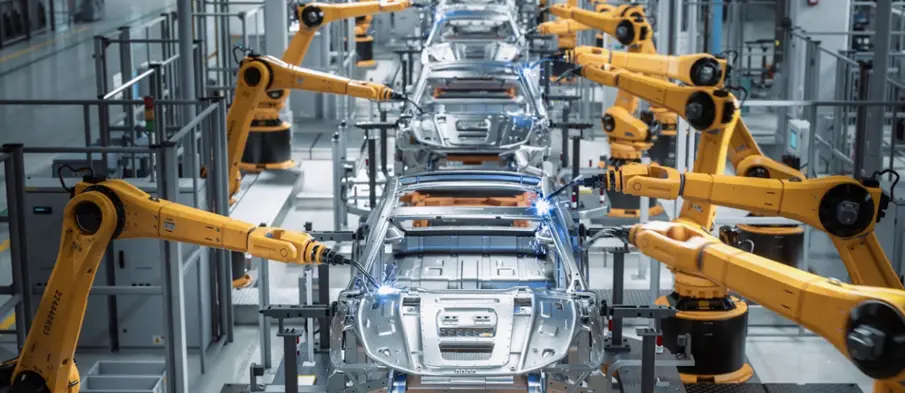
Artificial Intelligence (AI) is making a significant impact across various industries, with its influence being notably pronounced in the manufacturing and automotive sectors. In the automotive industry, AI is expected to show a remarkable growth trajectory, with forecasts indicating a compound annual growth rate (CAGR) of nearly 40%, leading to a market value of $15.9 billion by 2027. This growth is largely driven by the rising demand for connected vehicles and advanced smart technologies, such as voice and image recognition systems. As a result, AI and automation are becoming increasingly integral to the automotive industry, playing key roles in vehicle design, manufacturing processes, and the overall driving experience.
The automotive industry in 2024 is undergoing a transformative phase, marked by rapid advancements in technology and significant shifts in consumer preferences by incorporating artificial intelligence. Several key trends and innovations are shaping the landscape of this sector:
- Electric Vehicles (EVs) Domination: The automotive market is witnessing a surge in the adoption of electric vehicles. This shift is driven by advancements in battery technology, charging infrastructure, and increased environmental consciousness. Major automakers are heavily investing in EV production, signaling a strong commitment to sustainable transportation.
- Autonomous Driving Revolution: Self-driving technology is making remarkable strides, bringing us closer to a future where autonomous vehicles enhance safety and convenience. Companies like Tesla and Waymo are at the forefront of developing sophisticated self-driving systems.
- Connectivity and IoT Integration: The integration of the Internet of Things (IoT) in vehicles is redefining the driving experience. Enhanced connectivity features, including advanced infotainment systems and vehicle-to-vehicle communication, are becoming standard in modern cars.
- Sustainability and Green Initiatives: Automakers are increasingly focusing on sustainability. This includes not just the production of electric and hybrid vehicles but also the adoption of eco-friendly manufacturing processes and materials.
- 3D Printing in Manufacturing: 3D printing technology is revolutionizing automotive manufacturing, allowing for the creation of complex, lightweight parts and leading to customizable, high-performance vehicles.
- Advanced Safety Features: The automotive sector continues to integrate advanced safety technologies, including collision detection and adaptive cruise control, to enhance the safety of drivers and passengers.
- Shift Towards Sustainable Fuel: Alongside electric vehicles, the industry is also exploring sustainable fuels like hydrogen fuel cells and biofuels, particularly for long-haul transportation and heavy-duty vehicles.
- Global Market Expansion: The industry is expanding into emerging markets, with regions like Asia, particularly China and India, playing a pivotal role in the industry’s growth.
- Market Pressures and Development Cycles: Automakers are facing increased market pressures, leading to shorter development cycles. Technologies like digital twin technology are being utilized to optimize features and enhance vehicle design and manufacturing processes.
- Cybersecurity Focus: With the upcoming UN 155 regulation on cybersecurity, there is an increased emphasis on implementing robust cybersecurity management systems throughout the automotive value chain.
In conclusion, the automotive industry in 2024 and beyond is poised for dynamic growth, driven by technological innovation, sustainability, and evolving consumer needs. The integration of advanced technologies is not only transforming the way vehicles are designed and manufactured but also reshaping the entire user experience. As the industry navigates these changes, it stands at the cusp of a new era of mobility, marked by cleaner, more efficient, and more accessible transportation options.





